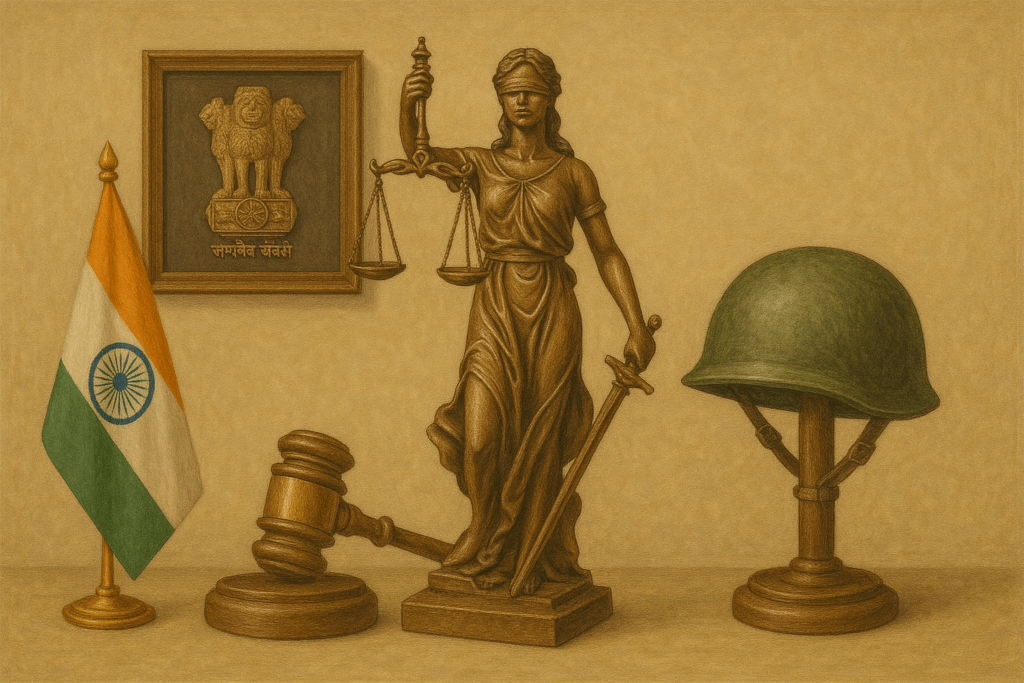
The military judicial system, designed to maintain discipline and order within the Armed Forces, is a unique blend of constitutional principles, statutory provisions, and the principles of natural justice. While it operates under a distinct framework to cater to the exigencies of military life, it is not immune to the fundamental tenets of fairness, transparency, and accountability that underpin any just legal system. The rights of the accused in the military judicial system are sacrosanct, and their violation not only undermines the rule of law but also erodes the trust and morale of the forces. This article delves into the intricacies of these rights, examines systemic challenges, and proposes reforms to ensure justice is served, drawing upon landmark judgments and case laws to underscore the legal and ethical imperatives.
1. The Genesis of Justice: When the Rights of the Accused are compromised
The trial of an accused in the military whether through a formal court-martial or an informal administrative action begins the moment their character or reputation is called into question. The Armed Forces, governed by statutes such as the Army Act, 1950, Navy Act, 1957, and Air Force Act, 1950, are constitutionally mandated to uphold the principles of natural justice, as enshrined under Article 14 (equality before the law) and Article 21 (right to life and personal liberty) of the Constitution of India. However, the implementation of these principles often hinges on the competence, impartiality, and accountability of the competent authorities. Justice begins to fade when authorities deviate from their legal and ethical duties. This deviation manifests in several ways:
Command Influence and Hierarchical Bias: When superior officers exert undue influence over decision-makers, the impartiality of the judicial process is compromised. In Union of India v. Major General Shri Kant Sharma (2015) 6 SCC 773, the Supreme Court emphasized that military tribunals must function independently, free from external pressures, to ensure fairness. The Court held that any interference by higher authorities in judicial or quasi-judicial proceedings violates the principles of natural justice.
Failure to Provide a Fair Hearing: The right to be heard is a cornerstone of natural justice. In Lt Col Prithi Pal Singh Bedi v. Union of India (1982) 3 SCC 140, the Supreme Court ruled that an accused in a court-martial must be given a reasonable opportunity to defend themselves, including access to legal counsel and relevant evidence. The failure to adhere to this principle renders the proceedings null and void.
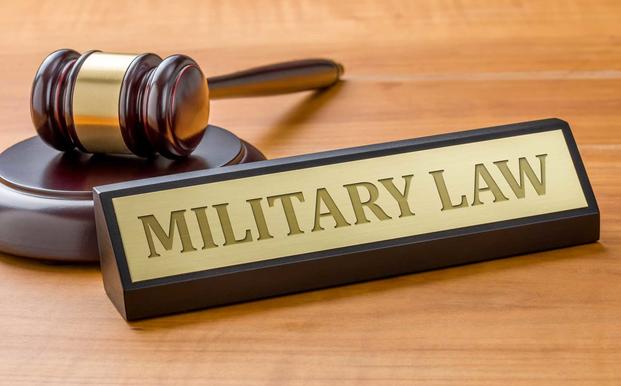
Burden of Proof Misapplication: Military law demands strict proof of allegations, and the burden lies on the prosecution or the authority questioning the accused’s conduct. Presumptions or assumptions have no place in a system governed by law. In Union of India v. Col G.S. Grewal (2014) 7 SCC 303, the Supreme Court set aside a court-martial proceeding due to the prosecution’s failure to discharge its burden of proof, highlighting that vague or unsubstantiated allegations cannot sustain a conviction.
When authorities act as tools of hierarchy rather than neutral arbiters, or when they fail to grasp the legal framework, the resulting decisions are flawed products of ignorance, bias, or self-interest. Such lapses not only violate the rights of the accused but also attract scrutiny under the law, as they may constitute offences under provisions like Section 57 of the Army Act, which penalizes conduct that brings disrepute to the military.
2. Legal Misadvice and Procedural Non-Compliance: A Recipe for Injustice
The military judicial system is heavily reliant on procedural safeguards to ensure fairness. Non-compliance with these safeguards whether due to incompetence, negligence, or deliberate manipulation—often leads to the setting aside of proceedings by higher judicial forums. The role of legal advisers, such as Judge Advocates in courts-martial or legal officers in administrative actions, is pivotal in preventing such miscarriages of justice. Legal advisers are tasked with scrutinizing records for procedural and substantive lapses.
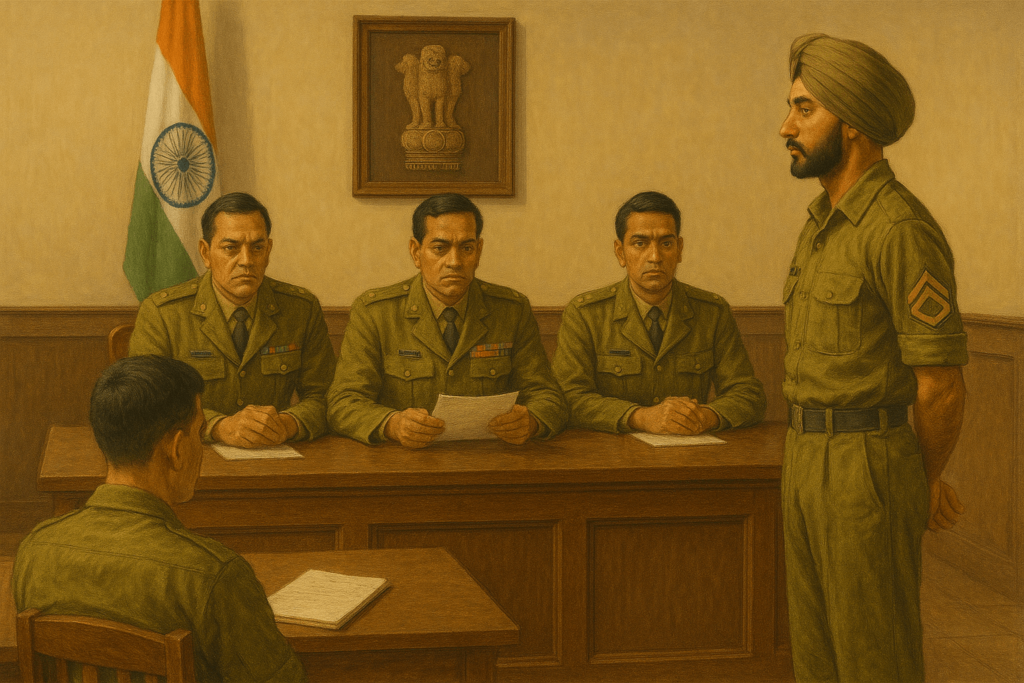
Their failure to do so can have far-reaching consequences. For instance:
Procedural Irregularities: In Ranjit Thakur v. Union of India (1987) 4 SCC 611, the Supreme Court quashed a court-martial proceeding due to procedural irregularities, including the denial of a fair opportunity to the accused to cross-examine witnesses. The Court held that strict adherence to statutory procedures is non-negotiable, as it ensures the legitimacy of the process.
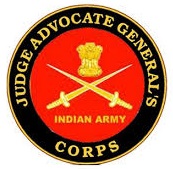
Misadvice by Legal Officers: When legal advisers provide incorrect or biased advice, they undermine the sanctity of command decisions. In Union of India v. Lt Col P.S. Bhargava (1997) 2 SCC 28, the Supreme Court criticized the role of a Judge Advocate who failed to guide the court-martial properly on points of law, leading to a miscarriage of justice. The Court emphasized that legal advisers must act with competence and integrity, as their advice directly impacts the rights of the accused.
The failure of legal advisers to flag defects, whether due to incompetence or external influence, not only prejudices the accused but also exposes the military to judicial embarrassment. Higher courts have consistently intervened to correct such lapses, reinforcing the need for robust legal oversight within the military judicial system.
3. Transparency Violations: The Denial of Documents and Records
One of the most egregious violations of the rights of the accused occurs when they are denied access to documents and records critical to their defence. Transparency is the bedrock of any fair judicial process, and its absence breeds suspicion, erodes confidence, and undermines the legitimacy of the system.
The following scenarios highlight the gravity of transparency violations:
Denial of Representations and Complaints: An accused has a fundamental right to access their own representations or complaints, as these documents form the basis of their defence or appeal. In S.N. Mukherjee v. Union of India (1990) 4 SCC 594, the Supreme Court held that the denial of access to relevant documents violates the principles of natural justice, as it prevents the accused from effectively contesting the allegations against them.
Withholding Notings and Minutes: The notings and minutes of decision-making processes, such as those recorded by Boards of Officers or inquiry committees, are critical to understanding the rationale behind adverse decisions. Their denial raises suspicion about the fairness of the process. In Union of India v. K.V. Jankiraman (1991) 4 SCC 109, the Supreme Court ruled that an employee (or accused) has a right to access official records that impact their career or reputation, as these documents are not privileged unless explicitly protected by law.
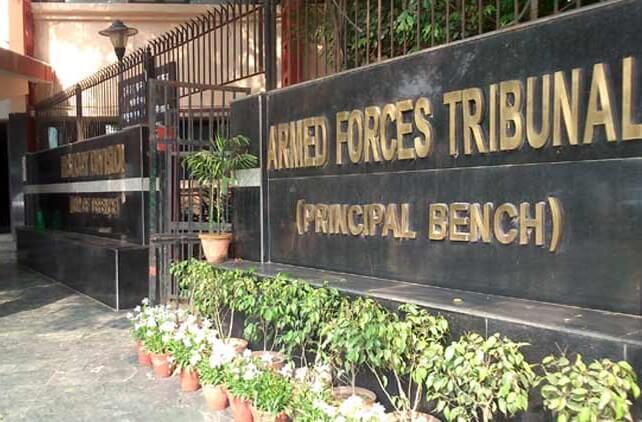
While certain records may be prepared in a fiduciary capacity (e.g., confidential reports), once they form the basis of a decision affecting the accused, they become official documents subject to disclosure. The refusal to provide such records indicates either a fear of exposure or a deliberate attempt to suppress facts, both of which are antithetical to the principles of military justice. The Armed Forces Tribunal (AFT) has also taken a strong stance on transparency violations. In Maj Gen H.M. Singh v. Union of India (AFT, Chandigarh, 2012), the Tribunal set aside an administrative action due to the authorities’ refusal to provide the accused with inquiry reports and related documents. The Tribunal held that such denial not only prejudiced the accused but also cast doubt on the integrity of the decision-making process.
4. Restoring Faith and Ethics in Military Justice
The military judicial system must strike a delicate balance between maintaining discipline and upholding justice. To achieve this, transparency and accountability must be central to its functioning. The erosion of faith in the system caused by bias, incompetence, or procedural lapses has far-reaching consequences, not only for the accused but also for the morale and cohesion of the Armed Forces. Section 57 of the Army Act, 1950, is a powerful tool to ensure accountability. It punishes officers who mislead commanders through incorrect advice or suppression of facts, leading to judicial embarrassment. This provision underscores the ethical responsibility of all personnel involved in the judicial process to act with integrity and competence.

To restore faith in the system, commanders must take proactive measures:
Ensure Access to Records: Every accused must be provided with relevant files, notings, and records to enable them to understand and contest adverse decisions. This aligns with the Supreme Court’s ruling in Dev Dutt v. Union of India (2008) 8 SCC 725, which emphasized the right of an employee to access records that impact their career or reputation.
Timely and Reasoned Responses: Representations and complaints must be addressed promptly and with reasoned orders. In Mohinder Singh Gill v. Chief Election Commissioner (1978) 1 SCC 405, the Supreme Court held that administrative authorities must provide reasons for their decisions, as this ensures transparency and enables judicial review.
Inaction or delay in addressing representations reflects poorly on leadership. It suggests either a fear of exposure, a bias against the accused, or sheer incompetence. Such conduct undermines the ethical foundation of the military and erodes the trust of the rank and file.
5. Leadership and Command Responsibility: The Pillars of a Just System
The effectiveness of the military judicial system depends heavily on the quality of leadership. Commanders and senior officers are not merely administrators; they are custodians of justice, responsible for upholding the rights of the accused while maintaining discipline. Their selection must be guided by more than just rank or seniority it must be based on demonstrable leadership traits such as fairness, courage, legal awareness, and integrity. The Supreme Court, in Union of India v. Lt Gen Rajendra Singh (2000) 5 SCC 672, emphasized the importance of command responsibility in ensuring justice. The Court observed that commanders must act with impartiality and competence, as their decisions impact not only the accused but also the morale and discipline of the entire unit. To build a just and ethical military judicial system, the following reforms are imperative:
Training in Legal Awareness: Commanders must be trained in the basic principles of military law and natural justice. This includes understanding the rights of the accused, the burden of proof, and the importance of procedural compliance.
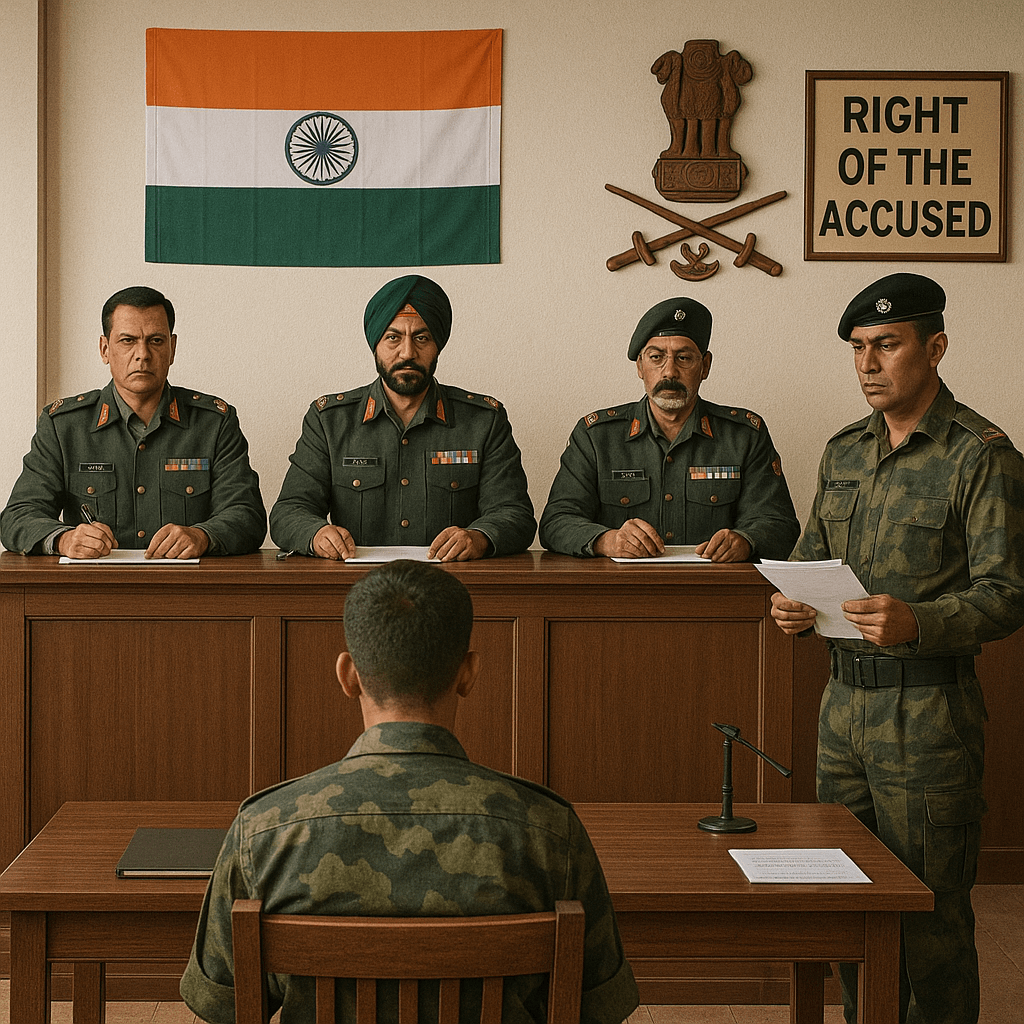
Accountability Mechanisms: Officers who violate the rights of the accused—whether through bias, misadvice, or suppression of facts—must be held accountable under provisions like Section 57 of the Army Act. This will deter malfeasance and reinforce ethical conduct.
Independent Oversight: The establishment of independent oversight bodies, such as an Ombudsman for the Armed Forces, could enhance transparency and accountability. This aligns with global best practices, as seen in countries like the United States, where the Inspector General system plays a crucial role in addressing grievances.
6. Landmark Judgments Reinforcing the Rights of the Accused
The judiciary has played a pivotal role in safeguarding the rights of the accused in the military judicial system. The following landmark judgments illustrate the evolving jurisprudence in this domain:
Lt Col Prithi Pal Singh Bedi v. Union of India (1982): This case established that the right to a fair trial, including access to legal counsel, is non-negotiable in court-martial proceedings. The Supreme Court’s ruling set a precedent for ensuring procedural fairness in military trials.
Ranjit Thakur v. Union of India (1987): The Court’s decision to quash a court-martial due to procedural irregularities underscored the importance of strict adherence to statutory safeguards. It also highlighted the need for proportionality in punishment, ensuring that penalties are not excessive or arbitrary.
Union of India v. Major General Shri Kant Sharma (2015): This case reaffirmed the independence of military tribunals and the need to shield them from command influence. The Supreme Court’s ruling serves as a reminder that justice must prevail over hierarchy.
Dev Dutt v. Union of India (2008): While not a military case, this judgment has significant implications for the Armed Forces. The Supreme Court’s emphasis on the right to access records impacting one’s career or reputation has been applied by the AFT in several cases involving military personnel.
These judgments collectively reinforce the principle that the military judicial system, while distinct, is not above the Constitution or the rule of law. The rights of the accused must be protected at all costs, as they form the foundation of a just and ethical institution.
7. Conclusion: Towards a Just and Ethical Military Judicial System

The military judicial system is a critical pillar of the Armed Forces, tasked with maintaining discipline while upholding justice. However, its effectiveness depends on the commitment of commanders, legal advisers, and other stakeholders to act with fairness, transparency, and accountability. The rights of the accused whether to a fair hearing, access to documents, or protection from bias are non-negotiable, as they reflect the constitutional and ethical values that the military is sworn to defend. The challenges outlined in this article command influence, procedural lapses, transparency violations, and leadership failures—can be addressed through systemic reforms, robust training, and a renewed focus on military ethics. The judiciary, through landmark judgments, has provided a roadmap for ensuring justice, and it is now incumbent upon the Armed Forces to internalize these principles. As a retired officer and advocate, I firmly believe that a just military judicial system is not only a legal imperative but also a moral necessity. It reinforces faith in the institution, strengthens the bond between commanders and troops, and ensures that the Armed Forces remain a beacon of discipline, integrity, and justice. By embedding fairness, courage, and legal awareness in its leadership, the military can uphold the rights of the accused while fulfilling its sacred duty to the nation.


Very informative article not restrictive to military laws but also encompassing civilian administrative services, specifically the Influence of the superiors and Hierarchical Bias – authorities acting as tools of hierarchy rather than neutral arbiters, violating rules and procedures leading to denial of Representations, Complaints and Withholding Notings and Minutes for vengeful decisions.